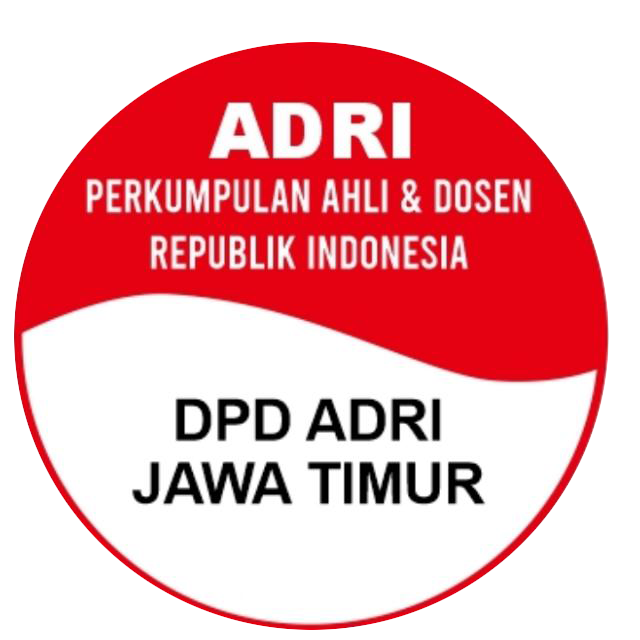Business Licensing Obligations for E-Commerce under Government Regulation No. 80/2019
DOI:
https://doi.org/10.55173/yurisdiksi.v21i3.330Keywords:
Business License, Trading Activities, Electronic Systems, Government Regulations.Abstract
This study examines the discrepancy between das sollen and das sein regarding the obligation to register a business license as mandated in Article 15(1) of Government Regulation Number 80 of 2019. Although the regulation requires all business actors to register their licenses with the Central Government, its implementation in Malang City remains ineffective. Of approximately 85,200 MSMEs, only about 22,000 had obtained official licenses by 2024. The study addresses two issues: (1) the factors contributing to the low compliance of micro-enterprise actors with licensing requirements, and (2) the legal implications for those operating without a business license. Using a socio-legal method with a juridical-sociological approach, the research relies on primary and secondary data collected through fieldwork and literature study. The sample consists of 13 respondents and 2 key informants, analyzed qualitatively. The findings reveal that the main cause of ineffective implementation is the low level of legal awareness and knowledge among micro-enterprise actors. Eight respondents were unaware of the obligation to register with the Disnaker PMPTSP of Malang City, while five respondents were aware but had not complied. This demonstrates that regulatory implementation has not been optimal. The legal implications for non-compliant business actors include the loss of legal validity of their operations and the potential imposition of administrative sanctions under applicable laws.
References
Agung, H. P. A. (2021). Perlindungan Data Pribadi Dalam Proses Pengurusan Perizinan Perusahaan Berbasis Elektronik Online Single Submission (Oss). Jurnal Ilmiah Galuh Justisi, 9(1), 62–75.
Azis, A. P. A. (2025). Apa Benar Penjual Di E-Commerce Harus Berizin Usaha?
Djulaeka, & Devi Rahayu. (2020). Buku Ajar: Metode Penelitian Hukum. Scopindo Media Pustaka.
Erni, E., & Jaya, F. (2022). Efektifitas Perizinan Berusaha Berbasis Risiko Dalam Rangka Kemudahan Berusaha. Wajah Hukum, 6(2), 248–257.
Hakim, L. (2023). Telaah Hukum Terhadap Perizinan Dalam Proses Investasi Di Indonesia Pasca Berlakunya Undang-Undang Cipta Kerja. Jurnal Dialektika Hukum, 5(1).
Ica. (2025). Minim Umkm Kantongi Nomor Izin Berusaha.
Jimly Asshiddiqie, S. H. (2021). Konstitusi Dan Konstitusionalisme Indonesia. Sinar Grafika.
Latif, N., Adi, B., Lasiyono, U., & Miradji, M. A. (2021). Digitalisasi Pengajuan Izin Usaha Umkm Di Desa Banjarkemantren, Kecamatan Buduran, Kabupaten Sidoarjo. Ekobis Abdimas: Jurnal Pengabdian Masyarakat, 2(1), 92–101.
Lukito, I. (2017). Tantangan Hukum Dan Peran Pemerintah Dalam Pembangunan E-Commerce. Jurnal Ilmiah Kebijakan Hukum, 11(3), 349–367.
Maryama, S. (2013). Penerapan E-Commerce Dalam Meningkatkan Daya Saing Usaha. Liquidity: Jurnal Riset Akuntansi Dan Manajemen, 2(1), 73–79.
Maulana, R., & Jamhir, J. (2018). Konsep Hukum Perizinan Dan Pembangunan. Jurnal Justisia: Jurnal Ilmu Hukum, Perundang-Undangan Dan Pranata Sosial, 3(1), 90–115.
Pmptsp, T. D. (2025). Disnaker Pmptsp Dalam Angka 2023.
Prasetyo, A. D., Budiono, A. R., & Hadiyantina, S. (2022). Politik Hukum Perubahan Norma Perizinan Dan Iklim Investasi Dalam Undang-Undang Cipta Kerja Menggunakan Metode Omnibus Law. Media Iuris, 5(2).
Santia, T. (N.D.). 60 Juta Pelaku Usaha Di Indonesia Ternyata Belum Punya Izin.
Sanusi, A. (2011). Hukum E-Commerce. Sasrawarna Printing, Jakarta Pusat.
Saptomo, P., Subiyatno, S., & Mintarsih, E. (2024). Eksistensi Peraturan Pemerintah (Pp) Sebagai Peraturan Pelaksanaan Undang-Undang (Uu). Innovative: Journal Of Social Science Research, 4(3), 7579–7586.
Sherlyanita, A. K., & Rakhmawati, N. A. (2016). Pengaruh Dan Pola Aktivitas Penggunaan Internet Serta Media Sosial Pada Siswa Smpn 52 Surabaya. Journal Of Information Systems Engineering And Business Intelligence, 2(1), 17–22.
Sidik, M. (2019). Perancangan Dan Pengembangan E-Commerce Dengan Metode Research And Development. Jurnal Teknik Informatika Unika Santo Thomas, 4(1), 99–107.
Soekanto, S. (2011). Faktor-Faktor Yang Mempengaruhi Penegakan Hukum.
Soimah, N., & Imelda, D. Q. (2023). Urgensi Legalitas Usaha Bagi Umkm. Jurnal Benuanta, 2(1), 21–25.
Spaltani, B. G., & Zuliyah, S. (2024). Problematika Pelaksanaan Prosedur Perizinan Berusaha Bagi Pelaku Usaha. Mizan: Jurnal Ilmu Hukum, 13(2), 157–165.
Suryani, T. (2008). Perilaku Konsumen: Implikasi Pada Strategi Pemasaran. Yogyakarta: Graha Ilmu, 118, 162.
Susanto, A., & Triani, N. N. (2023). Pentingnya Perizinan Bagi Para Pelaku Usaha Mikro Kecil Dan Menengah Desa Lemah Subur. Abdima Jurnal Pengabdian Mahasiswa, 2(2), 5498–5505.
Sutedi, A. (2010). Hukum Perizinan Dalam Sektor Pelayanan Publik. (No Title).
Tarina, A. (2020). Urgensi Izin Usaha Dalam Perdagangan Melalui Sistem Elektronik Bagi Usaha Mikro Dan Kecil. Jurnal Pelita Ilmu, 14(2), 88–106.
Wahyudi, H. S., & Sukmasari, M. P. (2018). Teknologi Dan Kehidupan Masyarakat. Jurnal Analisa Sosiologi, 3(1), 13–24.
Yeni, M., & Yanti, I. D. (2021). Kegiatan Pendampingan, Pembuatan Nomor Induk Berusaha (Nib) Melalui Online Single Submission (Oss) Bagi Anggota Koperasi Permaisuri Mandiri Di Kota Banda Aceh. J-Abdi: Jurnal Pengabdian Kepada Masyarakat, 1(3), 175–188.
Downloads
Published
Issue
Section
License
Copyright (c) 2025 Achmad Haekal, Sudarsono, Shinta Hadiyantina

This work is licensed under a Creative Commons Attribution-ShareAlike 4.0 International License.












